Writing Teaching Resources
Teaching writing strategies and the writing process this school year? Explore a comprehensive collection of teacher resources for primary English teachers — all created by teachers!
Stocked with graphic organisers, writing prompts, templates, worksheets and so much more, this collection of printable and digital activities is designed to help you as you help your students become more effective communicators and unleash their creativity and imagination.
Save time on lesson planning with resources that are aligned with the Australian curriculum (including version 9!) and have been through a careful review process by an expert member of our teacher team to ensure they're ready for your classroom and your students!
Are you looking for tips and tricks to add to your teacher toolkit this school year? Read on for a primer from our teacher team, including engaging activities for teaching writing inprimary school and a look at some of the different writing strategies your students will need to learn.
11 Writing Strategies Kids Should Know by the End of Primary School
We can't talk about teaching kids to write without talking about the different writing strategies that can help them do just that!
When it comes to teaching our students to become confident writers who articulate their ideas effectively, here are some of the strategies our teacher team prioritises:
1. Brainstorming
Brainstorming is something we often do in the classroom, and it's a crucial part of learning to generate the ideas that will drive students' writing as they progress through their educational journey. Kids should know how to create a list of potential topics or points related to a particular writing assignment.
With younger students, this is often done as a whole group by writing ideas and points on chart paper. In upper years, students transition over to using text-based materials to generate ideas and talking points.
2. Outlining
Before diving directly into any assignment, our students should be able to create a structured framework or outline. Teaching students how to create this outline will help them organise their thoughts and arguments for penning their essays, reports and research papers.

3. Using Graphic Organisers
Technically graphic organisers are classroom tools, so you may not think of their use as a writing strategy per se. However, learning to use these tools is another means of providing kids with the tools they need to organize their ideas and information before they sit down to write.
These organisers are particularly useful for expository writing — students can use them to outline main ideas, supporting details, and transitions.
Students can also take advantage of story maps when they are working on narrative writing to plot the key elements of a story, such as characters, setting, conflict, rising action, climax and resolution.
Graphic organisers such as the OREO strategy and hamburger paragraph are also great tools for students to use when working with opinion and persuasive texts.
4. Freewriting
Writer's block is the enemy of creativity, and it can easily frustrate young students who don't know where to begin.
When students freewrite, they write continuously without worrying about grammar or punctuation. This writing strategy can be extremely freeing — hence the name! — and helps frustrated writers move past that writer's block, generating fresh ideas.

5. Peer Editing
Learning to review and provide constructive feedback on each other's work is a great writing strategy to employ in your classroom to help students improve their writing quality and enhance their editing skills.
The strategy allows your students to learn from one another, and it arms them with an important tool they can use well into the future — calling on peers to provide a critical eye to a piece of writing.
6. Using Sensory Language
Working on descriptive writing? With this writing strategy, students engage the reader's senses through vivid and sensory language to create a more immersive experience.
7. Including Transitions and Connectives
As students become more proficient in the writing process, learning to use transitional words and phrases allows them to create smooth transitions between sentences and paragraphs. This strategy makes their writing more coherent and polished.
8. Incorporating Evidence
In persuasive, opinion and expository writing, students are taught to support their claims with evidence and examples to strengthen their arguments.
It takes some practice to train your students to use evidence in their writing, so it's often a good idea to start with something simple, like the R.A.C.E.S. strategy.
9. Crafting a Thesis Statement
In expository, opinion and persuasive writing, crafting clear and concise thesis statements that summarise the main point or argument of their essay helps students be more focused and organised in their writing.
This strategy can also have the effect of empowering students to express their ideas confidently and persuasively.
10. Incorporating Introductions and Conclusions
With this strategy, students practice crafting effective introductions and conclusions that grab the reader's attention and leave a lasting impression.
11. Following a Revision Checklist
Teaching your students to use a revision checklist is a strategy that will help them be more self-reflective, evaluating their own writing against the checklist criteria and becoming more aware of their strengths and weaknesses.

- Plus Plan
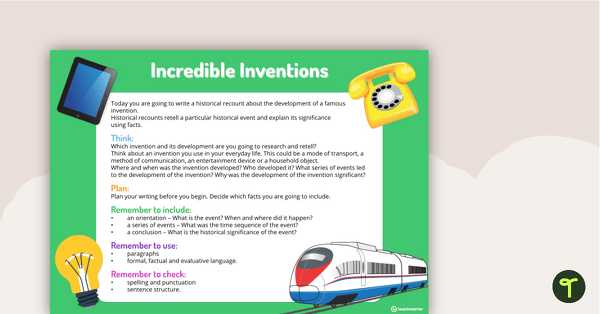
5 Historical Recount Stimulus Sheets
Writing stimulus sheets with a historical recount focus.
- Plus Plan
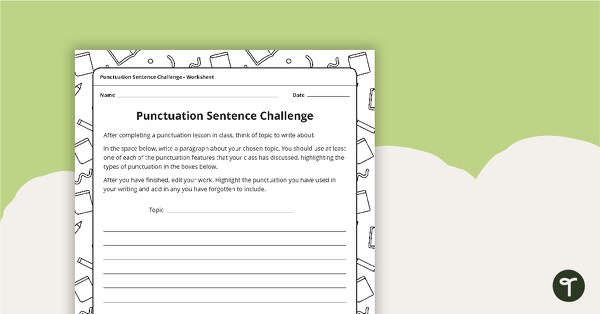
Punctuation Sentence Challenge Worksheet
A teaching resource to help consolidate the students’ knowledge of punctuation.
- Plus Plan
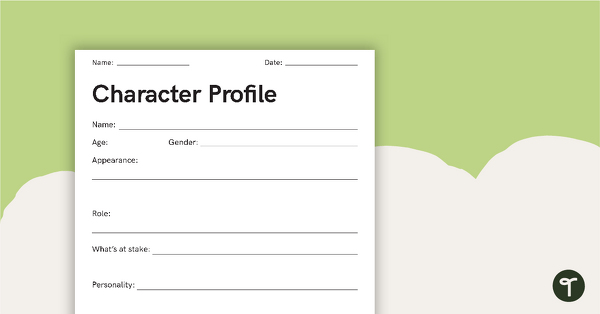
Detailed Character Profile Worksheet
A worksheet for students to use when building a character for a story.
- Plus Plan
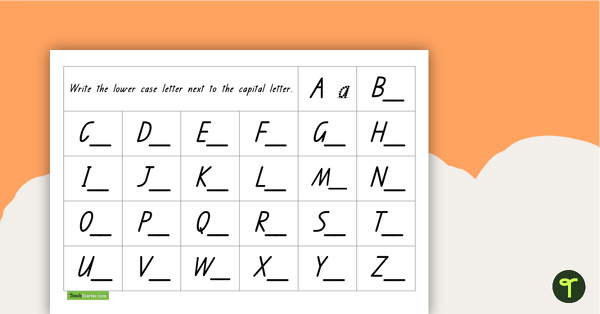
Writing Lower Case Letters
Students practice writing the lower case letter next to the provided capital letter.
- Plus Plan
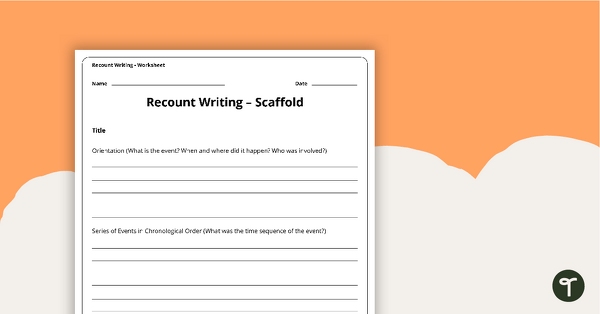
Recount Writing Scaffold
A one page scaffolding sheet which can be used to write a recount.
- Plus Plan
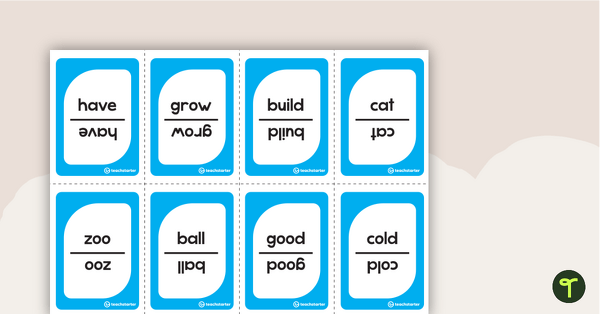
Parts of Speech Card Game – Upper Primary Classroom Game – Set 1
A card game for nouns, verbs and adjectives.
- Plus Plan
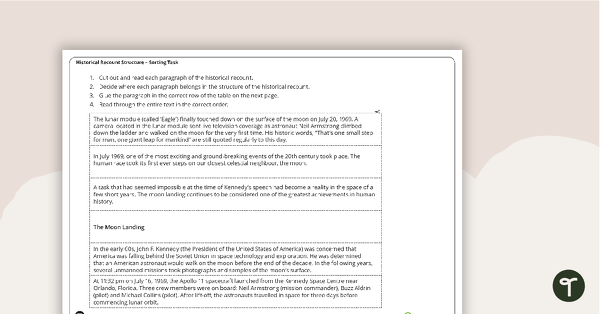
The Moon Landing - Historical Recount Structure Sorting Task
A sorting task to help students learn about the structure of a historical recount.
- Plus Plan
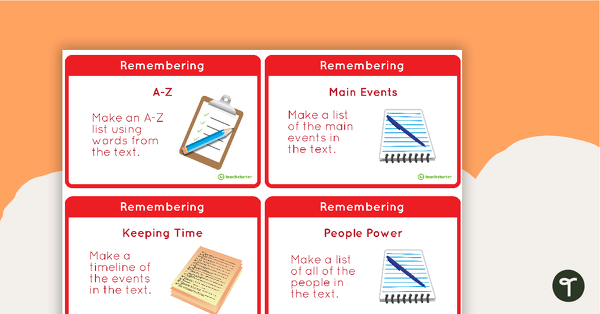
Bloom's Taxonomy Fast Finisher Task Cards - Middle Years
44 Bloom's Taxonomy fast finisher activity cards.
- Plus Plan
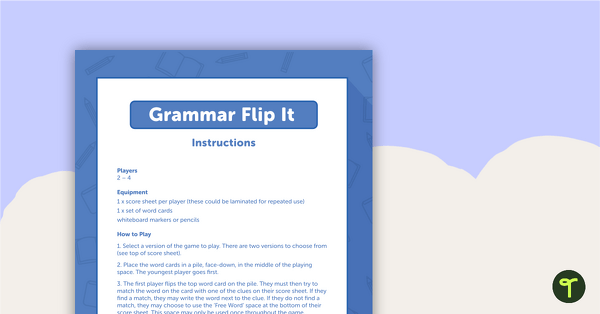
Verb Grammar Card Game – Flip It!
A fun game for students to play in small groups to consolidate their understanding of verbs.
- Plus Plan
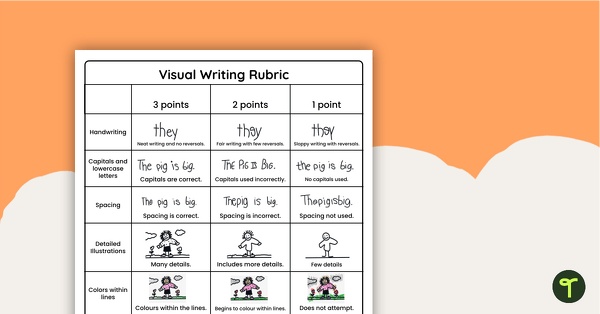
Visual Writing Rubric - Foundation Year
Help your foundation year writers perfect their writing with a visual writing rubric.
- Plus Plan
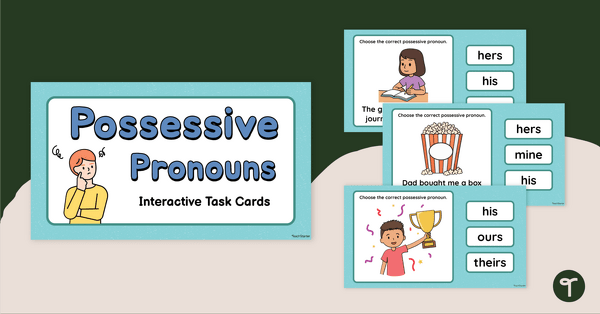
Possessive Pronouns Interactive Task Cards
Use this online possessive pronouns game to get your students identifying and using these important parts of speech.
- Plus Plan
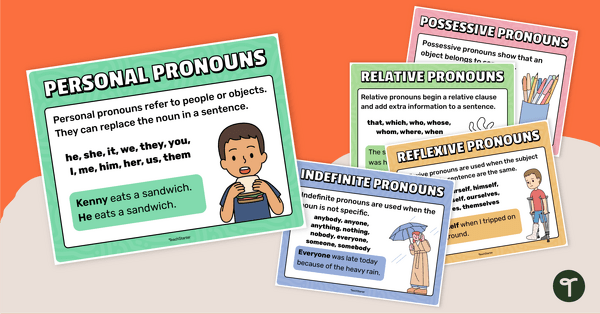
Pronouns Poster Pack
Display this set of 7 pronouns posters in your classroom to remind your students of the most common types of pronouns and their uses.
- Plus Plan
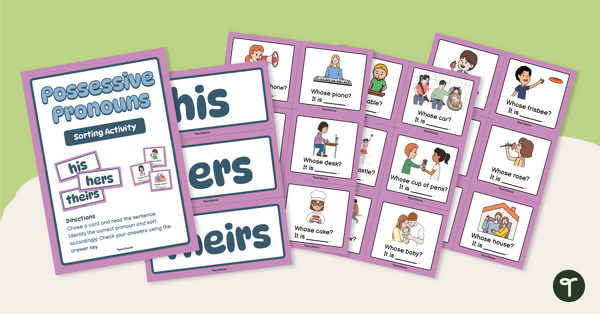
Possessive Pronouns Sorting Activity
Use this sorting activity in your grammar lessons to teach your students about possessive pronouns.
- Plus Plan
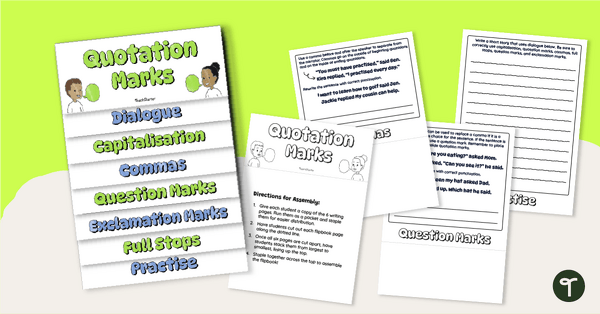
Using Quotation Marks Flipbook
Explore punctuation rules surrounding quotation marks with a printable Quotation Marks Flipbook template.
- Plus Plan
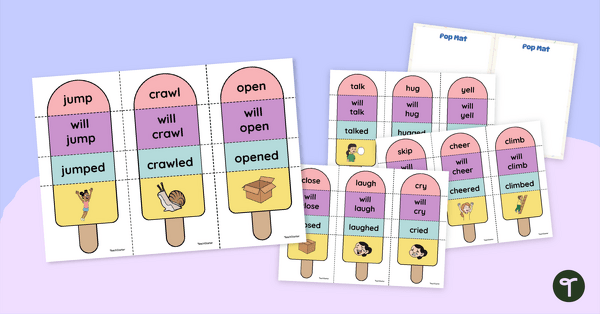
Verb Tense Puzzle Pop Activity
Grow your students' knowledge of the tense of verbs with this puzzle pop matching activity.
- Plus Plan
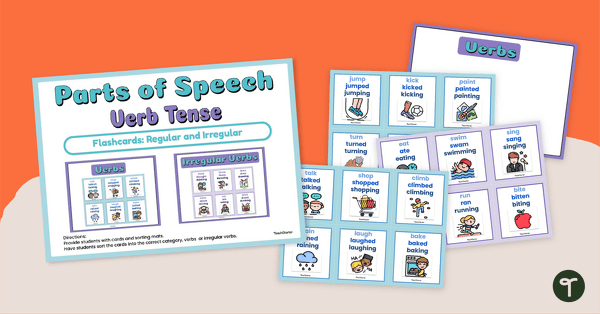
Verb Tense Regular and Irregular Sorting Activity
Help students understand the difference between a regular and irregular verb tense group with this hands-on verb sorting activity.
- Plus Plan
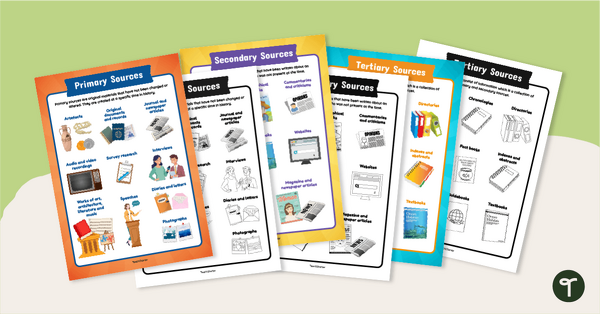
Primary, Secondary & Tertiary Sources Poster Pack
Introduce your students to examples of primary, secondary, and tertiary sources of information with a printable set of anchor charts.
- Plus Plan
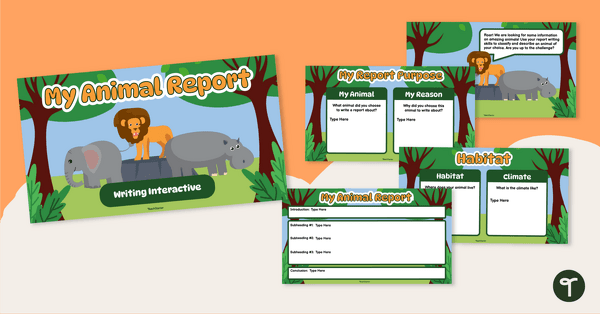
My Animal – Digital Report Writing Activity
Get your students to write an information report on an animal using this digital writing scaffold perfect for modelled and shared writing.
- Plus Plan
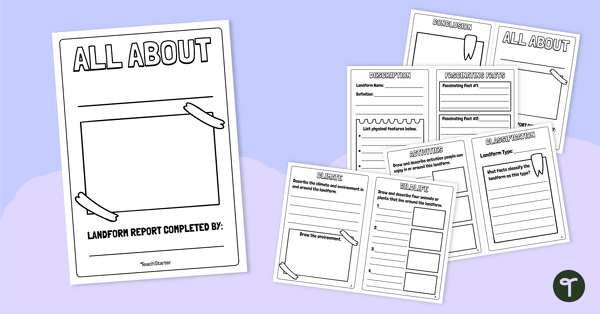
Landform Report – Mini Book Template
Download this information report template to use when teaching informative writing to primary students.
- Plus Plan
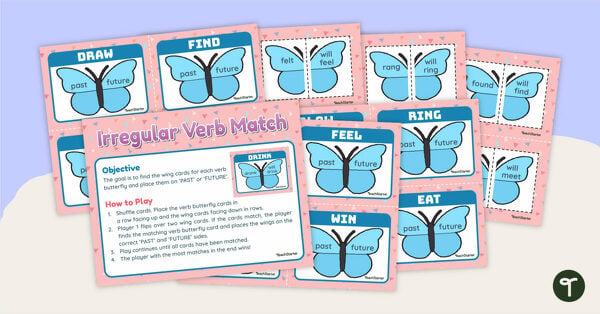
Past, Present, and Future Verb Tense Matching Activity - Irregular Verbs
Master past, present, and future tenses of irregular verbs with a butterfly matching activity.
- Plus Plan
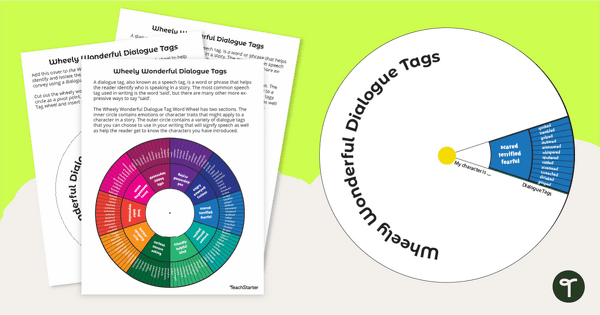
Wheely Wonderful Dialogue Tags Spinner
Spice up your students' writings and help them choose better dialogue tags with a ‘Wheely’ Wonderful Dialogue Tag Spinner.
- Plus Plan
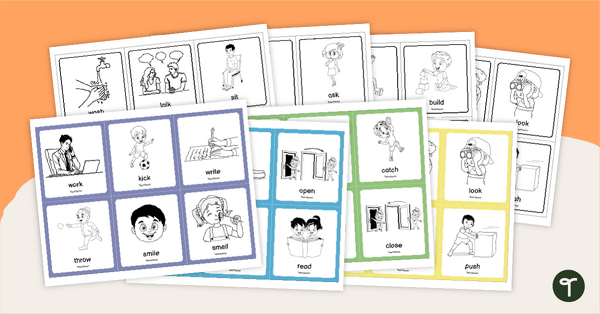
Commonly Used Verbs Flashcards
Teach commonly used verbs with this set of printable flashcards.
- Plus Plan
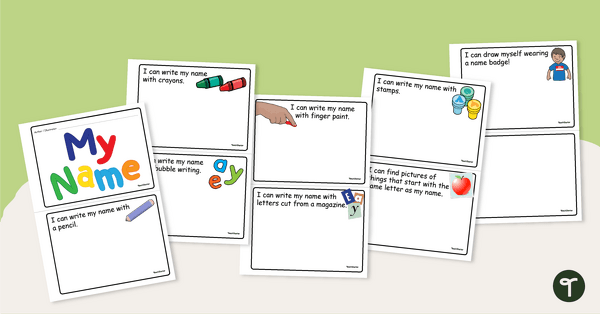
I Can Write My Name! Mini Book
Get your students practising how to write their names with this fun-sized mini book perfect for early years students.
- Plus Plan
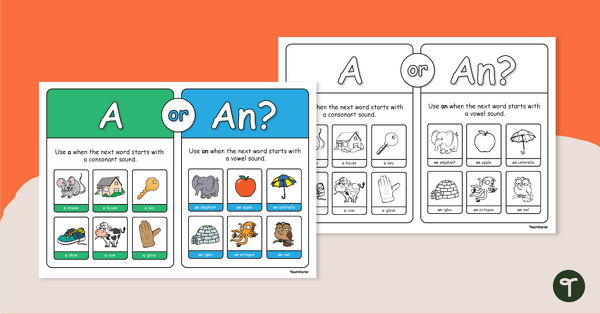
A or An? Poster
Use this articles poster to teach your students which article to use and when!
- Plus Plan
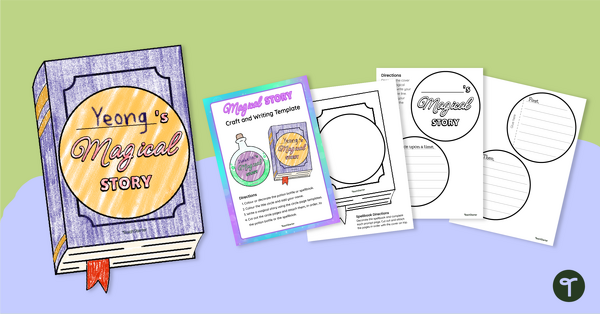
Magical Story Craft and Writing Template
Use this printable craft and writing template to get your students writing stories that are truly magical during Book Week 2024!
- Plus Plan
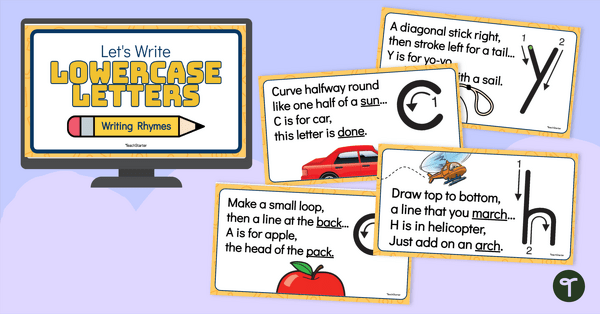
Alphabet Writing Rhymes - Teaching Slides
Use these fun alphabet writing rhymes to help students learn to write the letters of the alphabet.
- Plus Plan
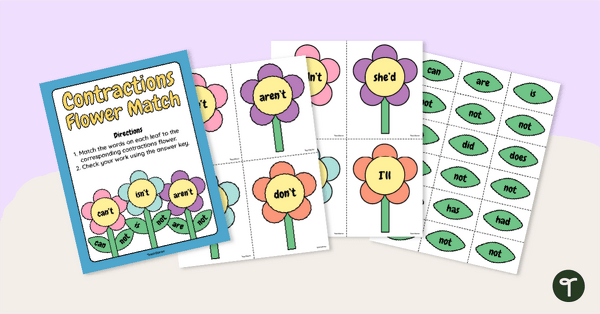
Contractions Flower Match Activity
Practise matching the correct words with their contraction with this cute flower match activity.
- Plus Plan
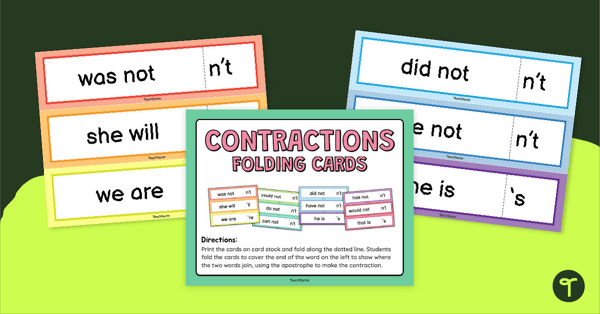
Contractions Folding Cards
Practise making contractions using this set of foldable contraction cards.
- Plus Plan
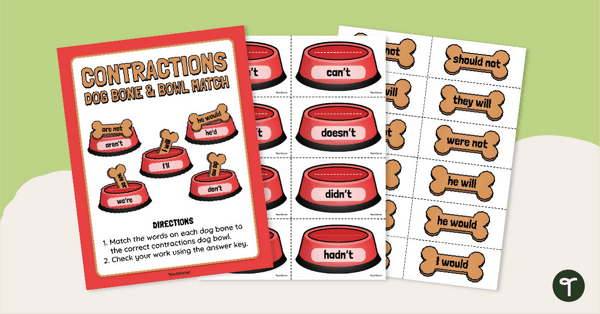
Contractions Matching Activity - Dog Bone and Bowl
Practise matching words with their contraction with this fun bone and dog bowl matching activity.
- Plus Plan
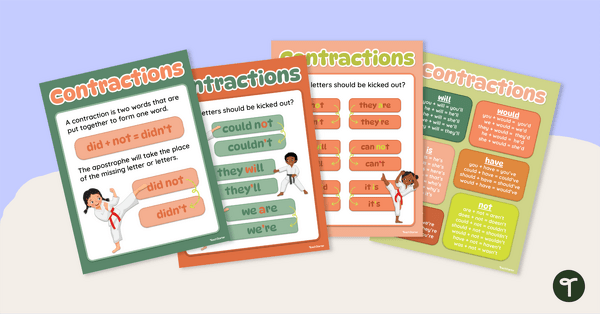
Contractions Poster Pack
Display these contraction posters in the classroom to help students remember the different contractions.
- Plus Plan
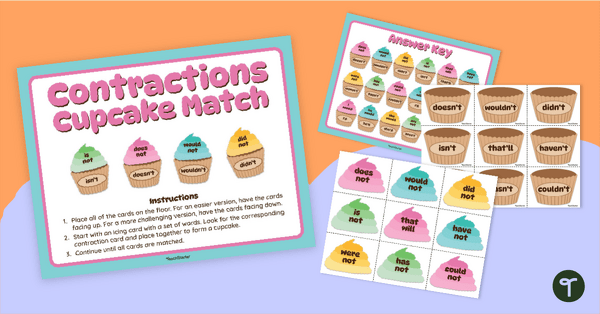
Contractions Cupcake Matching Activity
Practise matching contractions with their words using this fun cupcake match-up.
- Plus Plan
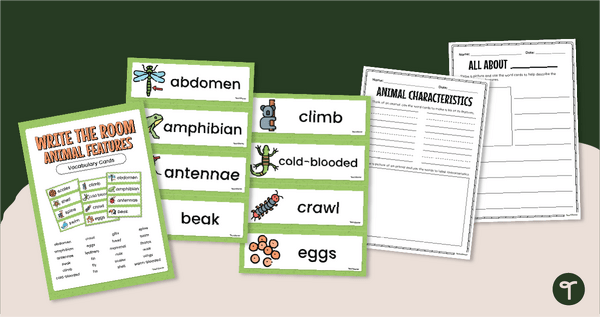
Characteristics of Animals - Year 1 Writing Activities
Help your young students read and write about features of animals with a printable Animal Characteristics Write the Room activity.
- Writing Worksheets
- Writing Templates
- Writing Games
- Writing Posters
- Writing Teaching Presentations
- Writing Labels, Signs & Decorations
- Writing Word Walls
- Writing Projects
- Writing for Preschool/Kindergarten
- Writing for Foundation Year
- Writing for Year 1
- Writing for Year 2
- Writing for Year 3
- Writing for Year 4
- Writing for Year 5
- Writing for Year 6
- Writing for Year 7